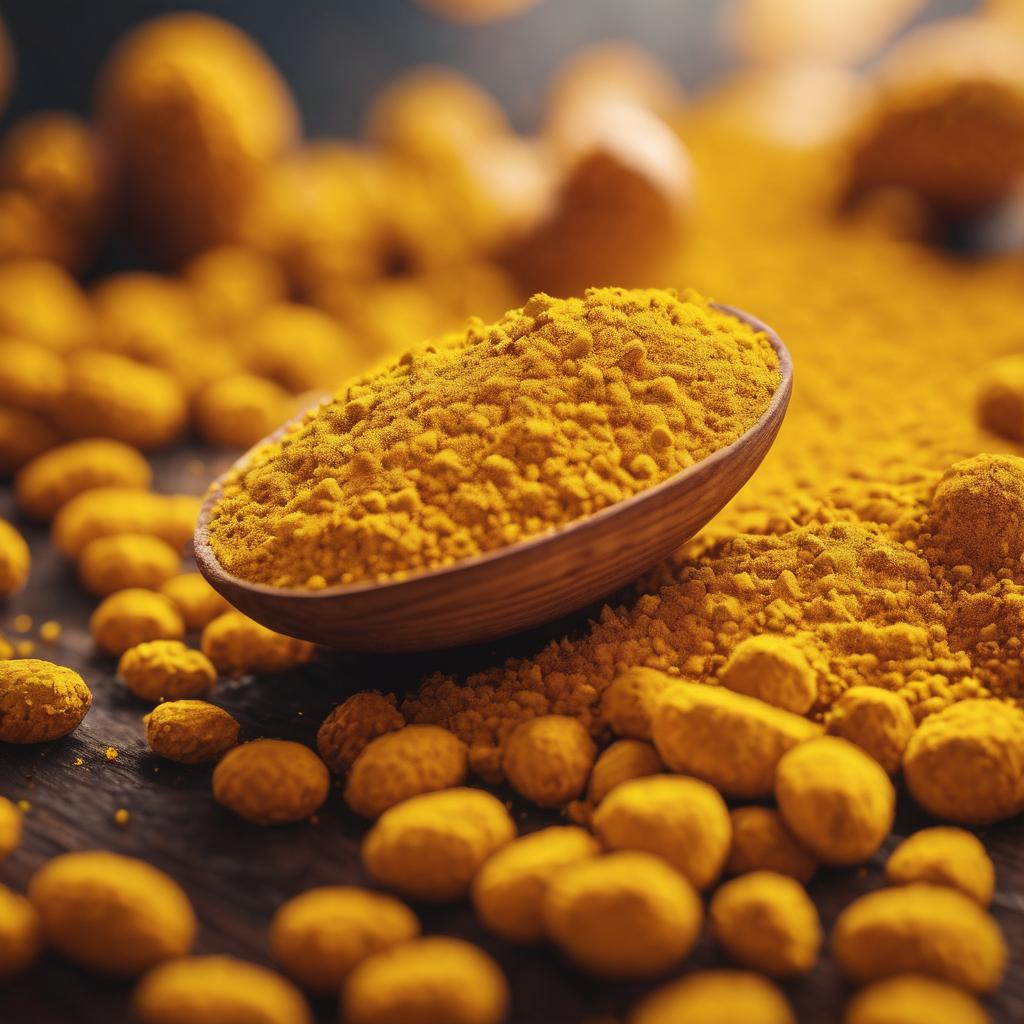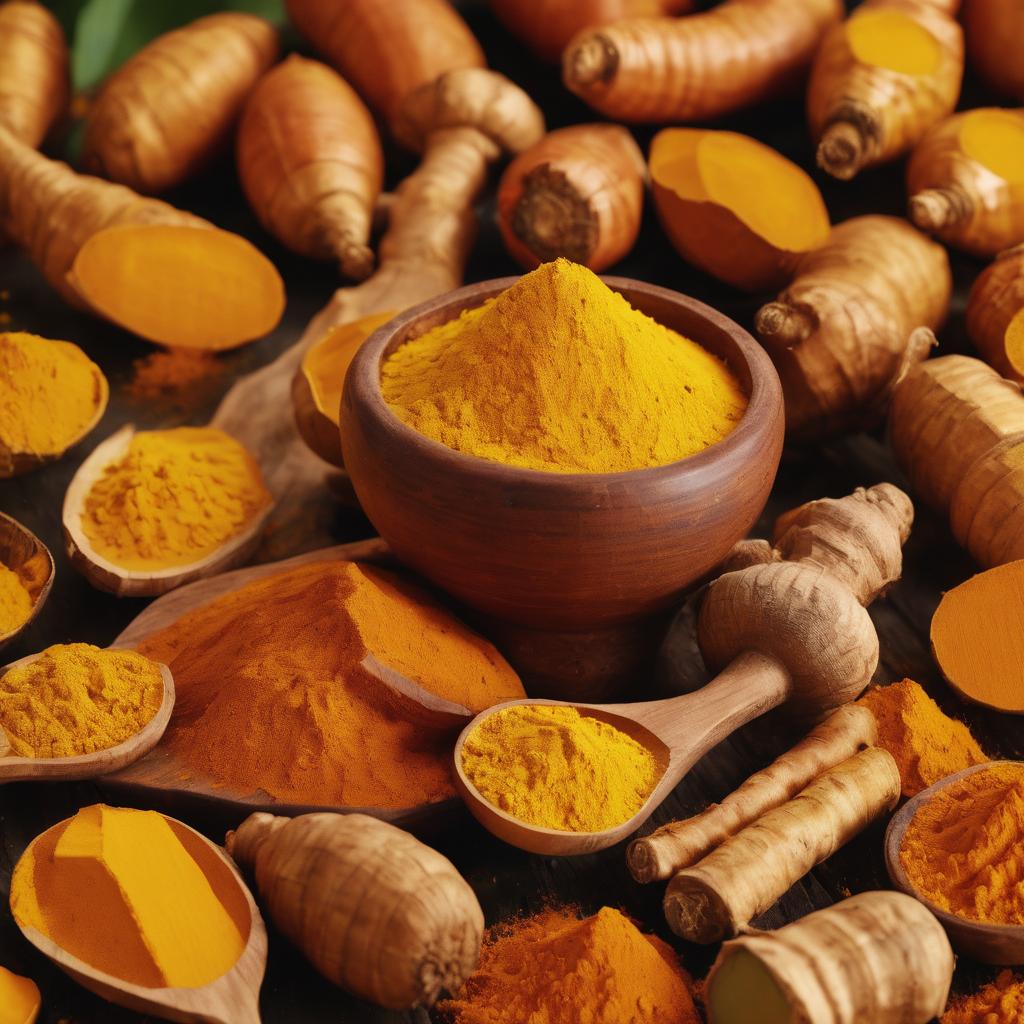
Are you curious about how curcumin can improve your liver wellness? Look no further! In this article, we’ll explore the impact of curcumin on liver wellness. You’ll discover the powerful role curcumin plays in supporting liver function, thanks to its anti-inflammatory benefits and antioxidant properties. We’ll also delve into how curcumin aids in the detoxification of the liver. So, if you’re looking to maintain a healthy liver, read on to learn how turmeric can be your secret weapon.
Key Takeaways
- Curcumin has potential benefits in liver disease, including protecting the liver against liver cancer and reducing inflammation and oxidative stress.
- Turmeric and its active compound, curcumin, have hepatoprotective properties and aid in the management of liver conditions like fatty liver disease, hepatitis, and cirrhosis.
- Curcumin possesses powerful anti-inflammatory properties that can help prevent liver diseases like hepatitis, cirrhosis, and fatty liver disease.
- Turmeric, with its antioxidant properties, supports liver detoxification processes and promotes overall liver wellness.
Turmeric and Liver Health
Turmeric can significantly improve your liver health. This vibrant yellow spice contains a powerful compound called curcumin, which has been studied for its potential benefits in liver disease. Research suggests that curcumin may help protect the liver against various conditions, including liver cancer.In a study published in the journal Cancer Letters, curcumin was found to inhibit the growth of liver cancer cells and induce cell death.
Another study published in the World Journal of Gastroenterology found that curcumin can help reduce inflammation and oxidative stress in the liver, which are major contributors to liver disease progression. These findings highlight the potential of turmeric and its active ingredient, curcumin, to support liver health and potentially prevent liver diseases such as liver cancer.
Curcumin’s Role in Liver Wellness
To understand the impact of curcumin on liver wellness, let’s delve into its role in maintaining a healthy liver. Curcumin, the active compound in turmeric, has shown promising effects on liver health. One way curcumin contributes to liver wellness is by influencing liver enzymes. Studies have demonstrated that curcumin can regulate the activity of certain liver enzymes, such as cytochrome P450, which play a crucial role in drug metabolism and detoxification processes. By modulating these enzymes, curcumin may enhance the liver’s ability to eliminate harmful substances from the body.
Additionally, curcumin has been found to possess potent anti-inflammatory and antioxidant properties, which are beneficial for liver disease prevention. Inflammation and oxidative stress are common factors in liver diseases, and curcumin’s ability to reduce these processes may help protect against liver damage and improve overall liver function.
How Turmeric Supports Liver Function
By incorporating turmeric into your diet, you can support optimal liver function. Turmeric, a spice commonly used in Indian cuisine, has been found to have numerous benefits for liver health. Its active compound, curcumin, has been shown to possess antioxidant, anti-inflammatory, and hepatoprotective properties. These properties help protect the liver from oxidative stress and inflammation, which are known to contribute to liver damage and disease.
Studies have shown that turmeric can aid in the management of various liver conditions, including fatty liver disease, hepatitis, and cirrhosis. It has been found to reduce liver enzyme levels, improve liver function, and decrease liver fat accumulation. Turmeric also promotes the production and flow of bile, which aids in the digestion and absorption of fats.
To highlight the potential benefits of turmeric for liver support, here is a table summarizing some key findings from research studies:
| Liver Condition | Turmeric Benefit |
|---|---|
| Fatty liver disease | Reduces liver fat accumulation |
| Hepatitis | Lowers liver enzyme levels, improves liver function |
| Cirrhosis | Decreases liver inflammation, supports liver health |
Incorporating turmeric into your diet can be as simple as adding it to curries, soups, or smoothies. However, it’s important to note that the curcumin content in turmeric is relatively low, so using a curcumin supplement may be more effective for therapeutic purposes. As always, consult with a healthcare professional before making any significant changes to your diet or starting any new supplements.
Further Reading
Is turmeric good for you? (2023),
Tannis. A :Turmeric Health Benefits: How Curcumins in Turmeric Benefit Your Liver, 2023,
The Anti-inflammatory Benefits of Curcumin
Curcumin, the active compound in turmeric, has been shown to possess powerful anti-inflammatory properties that can benefit liver health. By reducing inflammation, curcumin helps to prevent liver damage and promote overall liver wellness. Studies have demonstrated that curcumin can inhibit inflammatory pathways and reduce the production of inflammatory molecules, making it a promising natural option for combating liver inflammation.
Liver Inflammation Prevention
To effectively prevent liver inflammation, incorporate curcumin-rich foods into your diet. Curcumin, the active compound found in turmeric, has been shown to have potent anti-inflammatory properties, making it an ideal addition to your liver wellness routine. Inflammation plays a significant role in the development and progression of liver diseases such as hepatitis, cirrhosis, and fatty liver disease.
By reducing inflammation, curcumin can help protect your liver from damage and promote its overall health. Studies have also shown that curcumin can inhibit the activation of inflammatory pathways and reduce the production of pro-inflammatory molecules in the liver.
Additionally, curcumin has been found to enhance the production of antioxidants in the liver, further supporting its anti-inflammatory effects. Incorporating curcumin-rich foods, such as turmeric, into your diet can be an effective strategy for preventing liver inflammation and promoting liver wellness.
Curcumin’s Anti-Inflammatory Properties
Incorporating curcumin-rich foods into your diet can help reduce inflammation and promote liver wellness. Curcumin, the active compound found in the spice turmeric, has been shown to possess powerful anti-inflammatory properties. Studies have demonstrated that curcumin can inhibit the activity of various pro-inflammatory molecules in the body, thereby reducing inflammation.
Additionally, curcumin has been found to enhance the bioavailability of other compounds that promote liver health. Research suggests that curcumin’s ability to reduce liver fibrosis, a condition characterized by the excessive accumulation of scar tissue in the liver, is particularly beneficial.
By inhibiting the activation of hepatic stellate cells, curcumin can prevent the progression of liver fibrosis and promote the regeneration of healthy liver tissue. Including curcumin-rich foods in your diet can be a simple yet effective way to combat inflammation and support liver health.
Curcumin for Liver Health
Are you wondering how curcumin can benefit your liver health through its anti-inflammatory properties? Using curcumin supplements or incorporating it into your diet through natural liver remedies can have numerous benefits for your liver. Curcumin has been shown to have a positive impact on liver enzymes, helping to reduce inflammation and oxidative stress in the liver.
This can be particularly beneficial for individuals with liver diseases, such as liver cancer, liver fibrosis, liver cirrhosis, and fatty liver disease. Research has indicated that curcumin’s anti-inflammatory effects may help inhibit the growth of liver cancer cells and reduce the risk of liver fibrosis and cirrhosis. Additionally, curcumin has shown potential in treating fatty liver disease by reducing inflammation and improving liver function. Incorporating curcumin into your liver health regimen may help support overall liver wellness.
Turmeric’s Antioxidant Properties for Liver Health
Turmeric, with its active compound, curcumin, has been found to possess antioxidant properties that can benefit liver health. One key aspect is its ability to support liver detoxification processes, helping to remove toxins and harmful substances from the body. Additionally, curcumin’s anti-inflammatory effects can help reduce inflammation in the liver, which is often associated with liver diseases. Furthermore, studies have shown that curcumin may have the potential to promote liver regeneration, aiding in the healing and repair of damaged liver tissue.
Liver Detoxification and Curcumin
Boost your liver health with curcumin, a powerful antioxidant found in turmeric, by supporting liver detoxification. Curcumin has been shown to have a positive impact on liver enzymes, which play a crucial role in the detoxification process.
Here are two important ways in which curcumin supports liver detoxification:
- Enhances liver enzyme activity: Curcumin has been found to increase the activity of liver enzymes such as glutathione S-transferase (GST) and UDP-glucuronosyltransferase (UGT). These enzymes are responsible for the breakdown and elimination of toxins from the body.
- Reduces oxidative stress: Curcumin’s antioxidant properties help combat oxidative stress, a major factor in liver damage and dysfunction. By neutralizing harmful free radicals, curcumin helps protect liver cells and promotes their proper functioning.
Curcumin’s Anti-Inflammatory Effects
To further support your liver health, curcumin’s anti-inflammatory effects can be attributed to turmeric’s antioxidant properties. Curcumin, the active compound in turmeric, has been shown to possess potent anti-inflammatory properties. Inflammation is a common underlying factor in many liver diseases, including fatty liver disease, hepatitis, and liver fibrosis. Curcumin’s ability to reduce inflammation can help protect the liver from further damage and promote its overall wellness.
One of the ways curcumin exerts its anti-inflammatory effects is by inhibiting the activity of inflammatory enzymes and pathways. It has been found to inhibit the production of inflammatory cytokines and suppress the activation of nuclear factor-kappa B (NF-kB), a key regulator of inflammation. By modulating these inflammatory pathways, curcumin can help reduce liver inflammation and mitigate the risk of liver damage.
Moreover, curcumin’s antioxidant properties play a crucial role in liver health. Oxidative stress, caused by an imbalance between the production of reactive oxygen species (ROS) and the body’s ability to neutralize them, is a major contributor to liver damage. Curcumin acts as a powerful antioxidant, scavenging free radicals and protecting liver cells from oxidative damage. It also enhances the activity of the body’s own antioxidant defense system, further bolstering liver health.
However, it is important to note that curcumin’s bioavailability and absorption can be limited. Its poor solubility and rapid metabolism in the body can result in low systemic levels. To overcome this challenge, various strategies, such as the use of piperine, a compound found in black pepper, or the formulation of curcumin with lipids or nanoparticles, have been explored to enhance its bioavailability.
Curcumin and Liver Regeneration
Curcumin’s antioxidant properties support liver regeneration and contribute to overall liver health. The liver is a vital organ responsible for detoxification and metabolism within the body. Liver diseases, such as hepatitis and cirrhosis, can lead to impaired liver function and even liver failure. Research has shown that curcumin, the active compound found in turmeric, can have a positive impact on liver diseases by promoting liver regeneration.
Here are some key ways in which curcumin supports liver regeneration:
- Curcumin reduces oxidative stress: Oxidative stress is a major contributor to liver damage. Curcumin’s powerful antioxidant properties help neutralize free radicals and reduce oxidative stress, protecting liver cells from damage.
- Curcumin alters liver enzymes: Studies have shown that curcumin can modulate liver enzymes involved in detoxification processes. By regulating these enzymes, curcumin enhances the liver’s ability to eliminate toxins and promotes liver regeneration.
Further Reading
The Trouble with Turmeric: Associated Liver Injury, Jefferson Health .
Can turmeric supplements harm the liver? How can you have this immunity safely? 2023, The Indian Express,
Curcumin and Detoxification of the Liver
Incorporate curcumin into your detoxification routine for optimal liver health. Curcumin, the active compound found in turmeric, has been shown to have a positive impact on liver function and detoxification. Liver diseases, such as fatty liver disease and hepatitis, can be caused by oxidative stress and inflammation. Curcumin possesses powerful antioxidant and anti-inflammatory properties, which can help protect the liver from damage and promote its detoxification processes.
Studies have shown that curcumin can inhibit the production of liver enzymes that are elevated in liver diseases, such as alanine transaminase (ALT) and aspartate transaminase (AST). Elevated levels of these enzymes are markers of liver damage. By reducing their production, curcumin can help improve liver function and prevent further liver damage.
Furthermore, curcumin has been shown to enhance the activity of enzymes involved in the detoxification process, such as glutathione S-transferase (GST) and UDP-glucuronosyltransferase (UGT). These enzymes play a crucial role in breaking down and eliminating toxins from the body. By enhancing their activity, curcumin can support the liver’s detoxification pathways and promote overall liver wellness.
Incorporating curcumin into your detoxification routine can be as simple as adding turmeric to your diet or taking curcumin supplements. However, it is important to note that curcumin’s bioavailability is relatively low. To enhance its absorption, it is recommended to consume curcumin with black pepper or in a liposomal form.
Using Turmeric to Maintain Liver Health

Maintain your liver health by incorporating turmeric into your daily routine. Turmeric is a natural liver cleanse that has been used for centuries in traditional medicine. It contains an active compound called curcumin, which has been shown to have antioxidant and anti-inflammatory properties that can support liver function. To maximize the benefits of turmeric for liver health, consider using turmeric supplements for liver detoxification. These supplements are specifically formulated to provide a concentrated dose of curcumin, ensuring that you receive the optimal amount for liver support.
Using turmeric as a natural liver cleanse and incorporating turmeric supplements into your routine can help promote liver health and overall well-being. However, it is important to note that turmeric should not replace medical treatment for liver conditions. If you have any concerns about your liver health, it is always best to consult with a healthcare professional for personalized advice.
Frequently Asked Questions
How does curcumin support liver detoxification?
Curcumin’s role in liver detoxification is rooted in its ability to enhance the activity of detoxifying enzymes. These enzymes play a pivotal role in breaking down and eliminating toxins from the body. By upregulating these processes, curcumin facilitates a more efficient removal of harmful substances, thereby promoting liver detoxification and potentially contributing to overall liver health.
Is curcumin effective in managing liver inflammation?
Research indicates that curcumin’s anti-inflammatory prowess extends to the liver, where it may play a pivotal role in managing inflammation. By inhibiting key inflammatory pathways and suppressing the production of pro-inflammatory molecules, curcumin showcases potential as a natural agent for individuals grappling with liver inflammation, though its efficacy may vary among different populations.
How should curcumin be included in the diet for optimal liver health?
Integrating curcumin into the diet for optimal liver health can be achieved through various means. Incorporating turmeric, the spice rich in curcumin, into cooking is a flavourful option. Alternatively, curcumin supplements provide a concentrated form. However, determining the ideal dosage and form requires individualized consideration. Consulting with a healthcare professional ensures a tailored approach that aligns with specific health goals and considerations.
Is curcumin safe for long-term use to support liver wellness?
Existing research suggests that curcumin is generally safe for long-term use. However, individual responses may vary, necessitating ongoing monitoring for any potential adverse effects. The multifaceted benefits of curcumin, including its anti-inflammatory and antioxidant properties, make it an attractive candidate for sustained use in supporting liver wellness. Consulting with a healthcare professional ensures a comprehensive understanding of its long-term implications on individual health.
Are there any contraindications or interactions with medications when using curcumin for liver health?
While curcumin is generally well-tolerated, it’s important to be aware of potential interactions with certain medications. Notably, curcumin may interact with blood thinners, necessitating caution in concurrent use. Disclosing all supplements to healthcare providers is crucial for a comprehensive assessment of potential interactions. Regular communication with a healthcare professional ensures a nuanced understanding of how curcumin fits into an individual’s broader health management strategy.
Conclusion
In conclusion, exploring the impact of curcumin on liver wellness has revealed its remarkable potential. Like a vibrant brushstroke on a canvas, curcumin from turmeric supports liver function by reducing inflammation and providing powerful antioxidant properties. It also aids in the detoxification process, ensuring the liver remains healthy and vital. By incorporating turmeric into our daily routine, we can take a proactive approach to maintaining liver health and nurturing our overall well-being.


